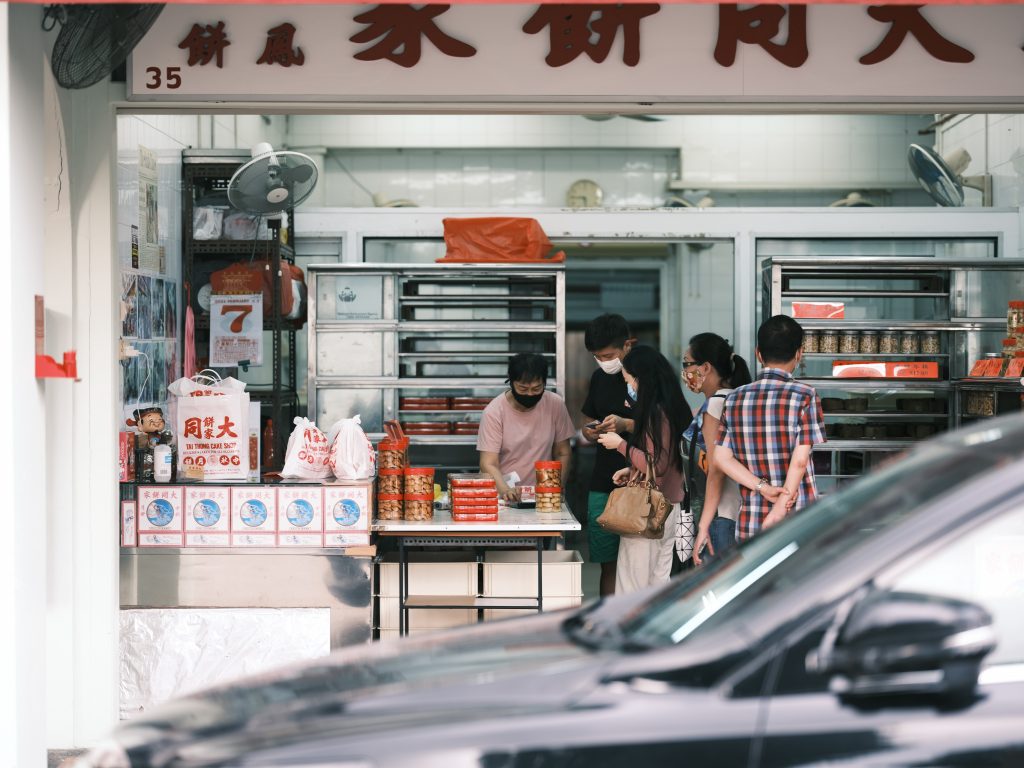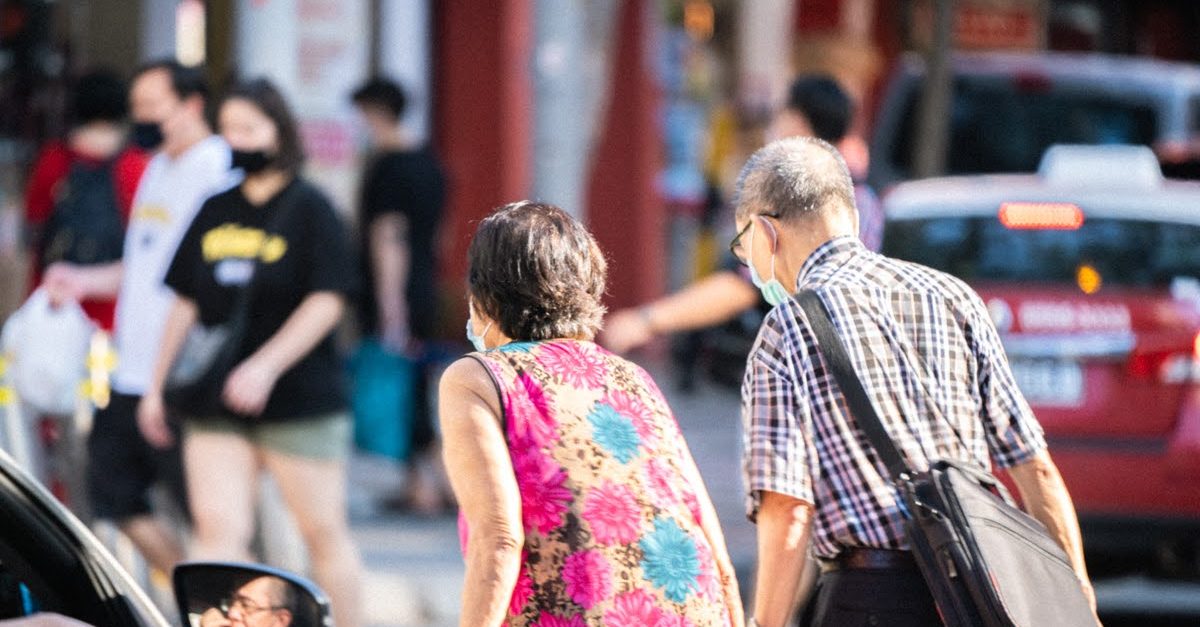Top Image: Zachary Tang/RICE File Photo
Each January, the Institute of Policy Studies (IPS) opens the year with its flagship Singapore Perspectives conference. Last week, under the theme of “City”, Singapore’s intelligentsia gathered to explore the policy and infrastructure steps we need to actualise the vision of our first Foreign Minister S. Rajaratnam for Singapore to be a truly global city.
Not quite a conference where you would expect to consider questions of the soul. And, yet, that’s just what happened for me—thanks to Health Minister Ong Ye Kung.
He helmed the conference with a lecture on notable cities from past and present and the lessons they offer for a unique city-state like Singapore. Amid Mr Ong’s arguments on the virtues of the city, I heard something that gave me pause.
In discussing nation-building and fostering togetherness, Mr Ong put forth that all this effort would lead to “something mysterious emerging, beyond security, beyond making a living, beyond creature comforts—like, the soul of a nation”.
Ong Ye Kung’s definition of the ‘soul’
For Mr Ong, the soul of the nation is an amalgamation of the well-known idiosyncrasies and shared experiences that you and I know so well from our social studies textbooks—instances such as “singing Majulah Singapura daily at school assemblies” and “cohorts of youngsters performing National Service together”.
Other familiar occurrences, as mentioned by Mr Ong, include “visiting the same hawker centres and public park”, “different communities living side by side in HDB estates”, “total strangers instinctively connecting with a Singlish phrase, even thousands of miles away from home”, and “battling crises like the Covid-19 pandemic together”.
No doubt, these integral experiences have made their way into the soul of a nation. However, I could not help feeling that there has to be more to it than these experiences. I had to ask myself: What exactly constitutes the soul of our nation?
Other speakers at the conference had their takes on this question.
Some speakers touched on inclusivity in city planning to accommodate the differently-abled, while others pointed to the complex effects of immigration and emigration on the Singaporean identity.
For me, these last two years under the shadow of Covid-19 have allowed some essential aspects of the soul of our nation to shine. On the brink of the second anniversary of Singapore’s first recorded case of Covid-19, it is important that we recognise the best qualities of Singaporeans that manifested and how these bring life and resilience to our city.
Where compassion was the frontrunner
Compassion may not be the first word you associate with “the soul of a nation”, but the last two years have shown us otherwise. The pandemic has certainly accentuated vulnerabilities and inequalities in our society; these trying times were answered readily and swiftly by many acts of compassion.
The proliferation of mutual aid groups is one such example. Mutual aid relies on and encourages involvement from the community to contribute deeds or gifts to match needs. In the space of a few months in 2020, Wares Mutual Aid was launched to help those disadvantaged receive support faster, followed by the Eastside Mutual Aid doing the same with a focus on the East of the island, and Migrant Mutual Aid on giving back to the migrant community in Singapore.
This continued support and participation with mutual aid groups signal that Singaporeans care about other facets of the community and are more than willing to help those that are less fortunate.
This is also seconded when schools moved from in-person classes to home-based learning; non-profit Engineering Good collected and refurbished used laptops to distribute to students from low-income families, whose learning might otherwise be impeded due to lack of digital devices.
The community spirit was further demonstrated in Telegram groups such as SG QO Groceries Volunteer Group and SG Quarantine Order Support Group that provided support to those serving their quarantine at home, whether it be purchasing groceries, ART kits, or even someone with whom to share their anxieties.

Singaporeans also continued to show their compassion for others by donating generously. The amount disbursed by Community Chest rose from S$55.6 million to S$58.7million in 2019 and 2020 respectively. Additionally, there were Singaporeans who readily donated their S$600 solidarity payment in 2020 to support various causes.
Compassion and empathy also found their way through to touch the events of everyday life, be it spontaneous donations to help dire medical cases, or lending a hand to passersby.
Singaporeans, both citizens and non-citizens alike, continually find their communities to draw strength from one another to face shared pressures or advance shared visions. There are various support groups for dealing with a myriad of challenging situations whether it be parents who lost a child, mothers of gay sons recovering from substance abuse, and crippling mental illness.
Whether these acts of compassion are found in large organisations or in the minutiae of every day, it tells us that Singaporeans want to create a society that is kind and that addresses misfortunes and vulnerabilities among us.
With this in mind, we should strive to build a city that has many opportunities for all parts of society to support and help each other, and we empower groups that seek to do so.
Our “bread and butter”

When one thinks of the ‘soul’ of Singapore, food naturally comes to mind. More than just sustenance, food is a node of community and interaction for Singaporeans, and the last two years truly tested how important food was to us.
The Circuit Breaker put a stop to catch-ups with friends and neighbours over late suppers at hawker centres, weekend brunches at cafes, or celebratory family meals in restaurants. F&B businesses took a beating, with many well-loved hawker stalls and restaurants shuttering for good.
And Singaporeans sprang to action. We instinctively ramped up takeaways and delivery orders to tide our hawkers and restaurant owners over the Covid-19 storm.
Others took things further. For older hawkers unfamiliar with the digital space, Instagram account @wheretodapao featured these hawkers to widen their digital footprint and encourage Singaporeans to buy from them. The heartening response to KF Seetoh’s impassioned plea to save our hawker culture is telling that Singaporeans are not ready to lose this indelible piece of our culture. There were also countless Facebook groups that encouraged people to purchase from your local hawker.
Yes, food warms our bellies, but those interactions surrounding the act of eating speak to a larger shared and communal experience that all Singaporeans can relate to.
Food is the site where new immigrants are introduced to the beating heart of Singapore and where they might even find a piece of their community here.
More than that, where we eat is where our relationships are built, and our connection to the community is fostered. It is in the way your favourite Fishball Noodle auntie remembers you like less chilli and more spring onion, or how the Nasi Briyani uncle has your order prepped and ready before you decide what to buy.
A passionate Singapore
The last component of the Singaporean soul, though an unexpected one, is the red-hot fires of passion. Not to sound like a Passion Made Possible advertisement, but it might behove you to know that Singaporeans are, indeed, a passionate bunch even during the pandemic.
It has been said before that Singapore, while academically accomplished, has lacked the creativity and entrepreneurial spirit for us to become a truly vibrant place.
However, that could not be further from the truth. The burgeoning number of start-ups even during Covid-19 times indicate that Singapore is not just concerned with the endless rat race, but we also seek to constantly create and invent new ways of doing things.
Take, for instance, The Ride Side, a local snowboarding company started by snowboarding enthusiasts who saw their revenue hit zero when the pandemic hit. Undeterred by the loss, they quickly pivoted to skateboard and longboards which were a hit amongst Singaporeans.
Following the growing interest, The Ride Side honed in on surf-skating and this evolved to the creation of communities where skate enthusiasts meet and learn different skills from each other. The Right Side recovered their losses and made a seven figures revenue in a year.
Given the economic downturn of Covid-19 is on businesses, one would think twice about setting up your business during these times. Still, the folks of Fotomat were undeterred and set up their self-shoot studio amidst the pandemic for Singaporeans to express themselves through black-and-white portraiture.
In smaller ways, we see the embers of passion burning through Singaporeans to embolden them to do what they love. Darren Goh, the owner of SneekPeek Singapore, spends his weekends conducting five-hour pay-as-you-wish walking tours around Singapore. He does this on top of this normal 9-to-5 job and for the sheer love of sharing the interesting tidbits of Singapore.
In these cases, we see how passion is the catalyst that spurs these entrepreneurs to work at their dream, and it is their successes that continually make Singapore a dynamic place.
So, what is the Singaporean soul?
It turns out the makings of the “soul of a nation” is not so mysterious after all. We know ourselves better than we think we do.
For this writer, our compassion, our undying love and connection to food, and our effervescent passionate spirit are what make up the soul of this nation.
As much as Singapore is subject to the vagaries of time and the tumultuous forces of globalisation, we should seek to hold on to these parts of our soul, to remember and practise them fiercely. It is these parts of Singapore’s soul that will persist and hopefully get us through whatever the future holds.




